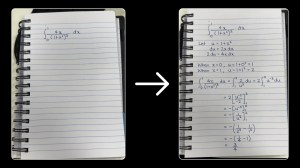The worst is not yet over for realty sector
The BSE realty index has slipped by over 82% from its high a year ago, the biggest loss for any sector on the BSE in a year.

The BSE realty index has slipped by over 82% from its high a year ago. This is the biggest loss for any sector on the BSE in a year, and far eclipses the 56% fall of the BSE 200 index in the same period. That, in a nutshell, just says it all—the sector that could make no wrong moves a year ago is simply coming apart.
Since the fund flow from the equity market is drying up, the realty companies would need more debt. And here, the sector may have just landed in more difficulty as the RBI made no further cut in its interest rates on Friday. This means bank finance will remain costly. So the sector is facing a major credit crunch from all sides.
“Borrowing costs are currently about 15.5 to 16.5%, compared with 12.1% for the year ended March 31, 2008, according to Sanjay Chandra, managing director of Unitech. The company’s shares were hammered 51.3% in the market meltdown on Friday but Chandra has blamed it on a bear cartel.
The company is the second-worst performer on the realty index this year. Its second quarter results are due on Friday.
Talking of the developments, Renu Karnad joint managing director, HDFC Ltd, told FE that banks were becoming more prudent while lending to the sector and disbursing home loans. She said, “We are providing customers construction-linked plans for home loans. We are giving funding (only) as the project progresses.”
Moreover, funding from PE is also drying up. “Investors want high returns, but PE firms cannot deliver such returns from their investments in real estate”, said an analyst with a firm that has put about 31% of its corpus in Indian realty.
In a report of estimated results for the second quarter for the top real estate firms, including Unitech, DLF & HDIL, brokerage firms are not very upbeat. Emkay, Religare and ICICI Securities say except for HDIL, the profit after tax of the other two firms could show a negative growth.
Revenues for DLF are expected to go up by 21.7% for the second quarter. Its profit after tax could decline by 2.5%. Unitech’s revenues for the second quarter are estimated up 7.3%, but profit after tax is expected to go down by 9.5%.
As cash becomes tight in the financial turmoil that has gripped the world, the interest is now on the land banks that these companies are sitting on. But many of these were bought at high prices. Those prices do not exist any more, so selling them to raise cash could be difficult again.
Currently, the policy of most developers is to consolidate their position and not expand their land banks. But even after a 20% price correction in the market, industry experts and analysts believe there is going to be more. So some new projects are being launched for raising funds. But developers are upbeat they have a healthy order book as a lot of consumers are waiting for the price to dip further before they book their houses. Mall rental rates are also expected to rationalise.
The debt-equity ratio of over the last few years has been healthy for most companies, except on a few occasions. Most realty companies had a debt-equity ratio over one during ‘04-05. ‘
In the next fiscal it was slightly higher. DLF at 4.67, Unitech at 2.89, Sobha Developers at 3.09 had higher debt equity ratios. In ‘06-07 DLF had an astonishingly high debt-equity ratio of 10.37 followed by Unitech and Omaxe at 3.08 and 2.9, respectively. The rest of the firms had it under 1. During the last fiscal, ‘07-08, most players managed to contain the debt-equity ratio below 1. Unitech at 3.78, Shobha Developers at 1.78 and Omaxe at 1.48 were the only exceptions.






- 01
- 02
- 03
- 04
- 05

























